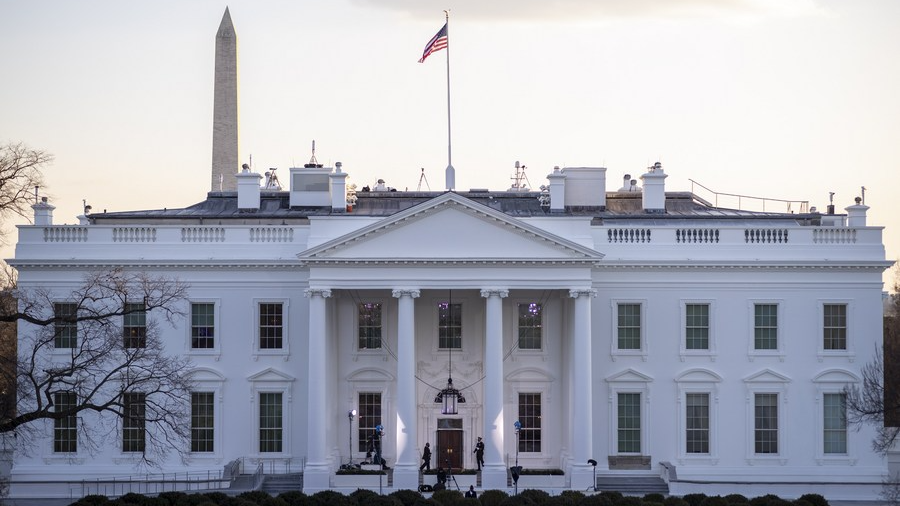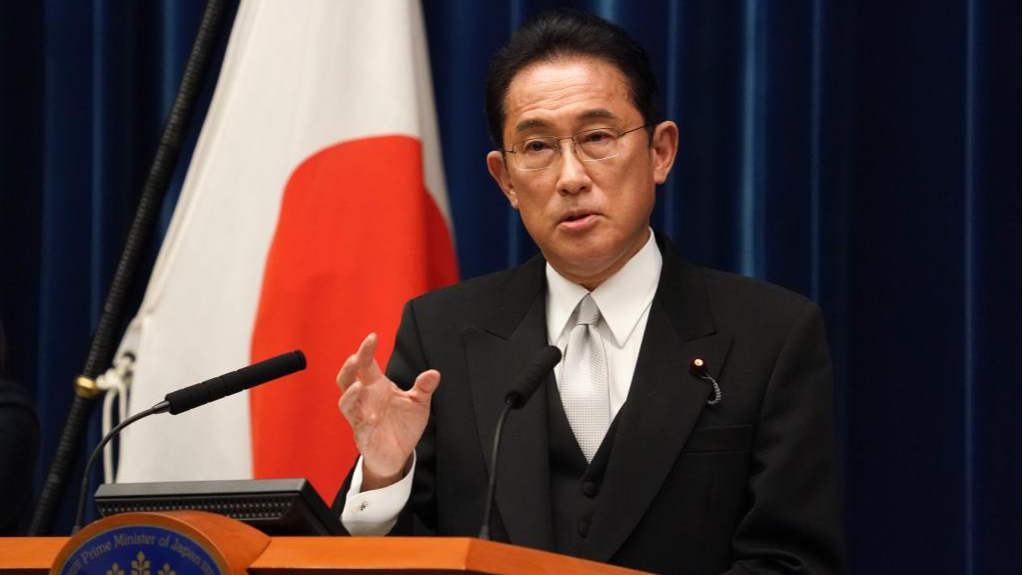
The White House in Washington, D.C., U.S. [Photo/Xinhua]
By Yuan Sha
The Japanese Prime Minister Fumio Kishida is set to visit the White House on April 10. The visit is highly expected to be a historic one, in that he and U.S. President Joe Biden will likely boost the U.S.-Japan alliance, and they will be joined by President Ferdinand Marcos Jr. of the Philippines for a first-ever trilateral summit on April 11, paving the way for a potential U.S.-Japan-Philippines trilateral security pact. Such moves will be unprecedented in nature, and risk "letting the genie out of the bottle" and unsettling the region and beyond.
A major upgrade in the U.S.-Japan security pact?
Leading up to the summit, some key information is grabbing international attention. One of the most concerning moves is that the two sides would agree on a major upgrade to the Treaty of Mutual Cooperation and Security between the U.S. and Japan, including restructuring the U.S. military command in Japan to strengthen operational planning and exercises. The U.S-Japan security alliance underwent several rounds of major revisions in 1978, 1997 and 2015 since they signed the mutual defense treaty in 1960, and this time would be the biggest upgrade. In addition, the U.S. is widely expected to consider inviting Japan to participate as a tech partner in the second pillar of the AUKUS security partnership between the U.S., UK and Australia.
Furthermore, the U.S.-Japan-Philippines summit is expected to form a trilateral security partnership, much like the U.S.-Japan-ROK trilateral partnership after the Camp David meeting last August. The three countries might even form a new AUKUS-type alliance to further strengthen military interoperability and defense technological transfers. In fact, the three countries already conducted a joint naval patrol with Australia in the South China Sea last week. Thus, we will likely see more trilateral security actions in the coming period.
Japan as a "spear" in the U.S. Indo-Pacific strategy
As a key part of the U.S. Indo-Pacific Strategy, the Biden administration has been stepping up efforts to strengthening alliances in the region as a way to encircle and contain China, where Japan is increasingly transformed into a "spear" in the region.
The U.S. is utilizing Japan's military ambition, economic clout and regional influence to act as a "second hand" in the Asia-Pacific, as it would encourage Japan to share more burdens and take a bigger role in regional security affairs. Furthermore, the U.S. is forming "U.S.-Japan+" minilaterals, including the U.S.-Japan-ROK trilateral security partnership and the U.S.-Japan-Philippines one in the making. In this process, the U.S. is drawing Japan deeper into its orbit.
Japan is readily jumping onto the U.S. bandwagon to contain China, its perceived arch-rival in the neighborhood. More ominously, Japan is taking the advantage to forgo its "exclusively defense-oriented policy," in an aim to shed its shackle of post-WWⅡ "pacifism," and reassert itself as a regional power.

Japan's Prime Minister Fumio Kishida speaks during a press conference in Tokyo, Japan, October 4, 2021. [Photo/Xinhua]
Facing record-low approval ratings for his cabinet, Prime Minister Kishida also has the domestic incentive to burnish his image of acting hawkish on China and forging a friendship with the U.S.
There is also an elephant in the room, as the prospect of the former U.S. President Donald Trump returning to the White House is alarming U.S. allies. Japan and the U.S. are thus trying to "Trump-proof" the alliance by "locking in" the security commitments before the upcoming U.S. presidential election, and fend off the dilemma of "abandonment" or "entrapment."
Heightening tensions in the region
The closer U.S.-Japan military ties send dangerous signals and heighten risks in the region.
First of all, it is encouraging Japan's rising militarism. Japan is dramatically increasing its defense budget, loosening arms export controls, and seeking military breakthroughs. According to Japan's new National Security Strategy released in December 2022, the country aims to double its defense budget within the next five years. Japan is also pursuing security cooperation with other countries, including reaching "reciprocal access agreements" with Australia and the UK, and possibly with the Philippines, which would allow its self-defense forces to train and conduct joint exercises on others' territories. As Japan has a historical record of war crimes against Asia-Pacific countries, its tilt to the right is disconcerting.
Secondly, it is increasing instability in the region. The U.S. is attempting to encourage Japan and the Philippines to make provocations against China from the East China Sea, the South China Sea and the Taiwan Straits, in an effort to "shape the strategic environment in which it (China) operates." But this would raise the moral hazard by emboldening Tokyo and Manila in making imprudent moves, which would increase miscalculations, cause unnecessary conflicts, risk uncontrollable chain reactions and may even bring the U.S. into open conflict with China, upsetting the peace and stability in the region.
Last but not least, it is fomenting bloc confrontation. By incorporating Japan into the AUKUS and other security partnerships in the region, the U.S. is actually redrawing its "hub-and-spoke" alliance system in Asia into a quasi "Asian NATO," raising the specter of rising arms races and an emerging new Cold War.
Yuan Sha, a special commentator on current affairs for CGTN, is an associate research fellow at the Department for Asia-Pacific Studies, China Institute of International Studies.

 中文
中文



